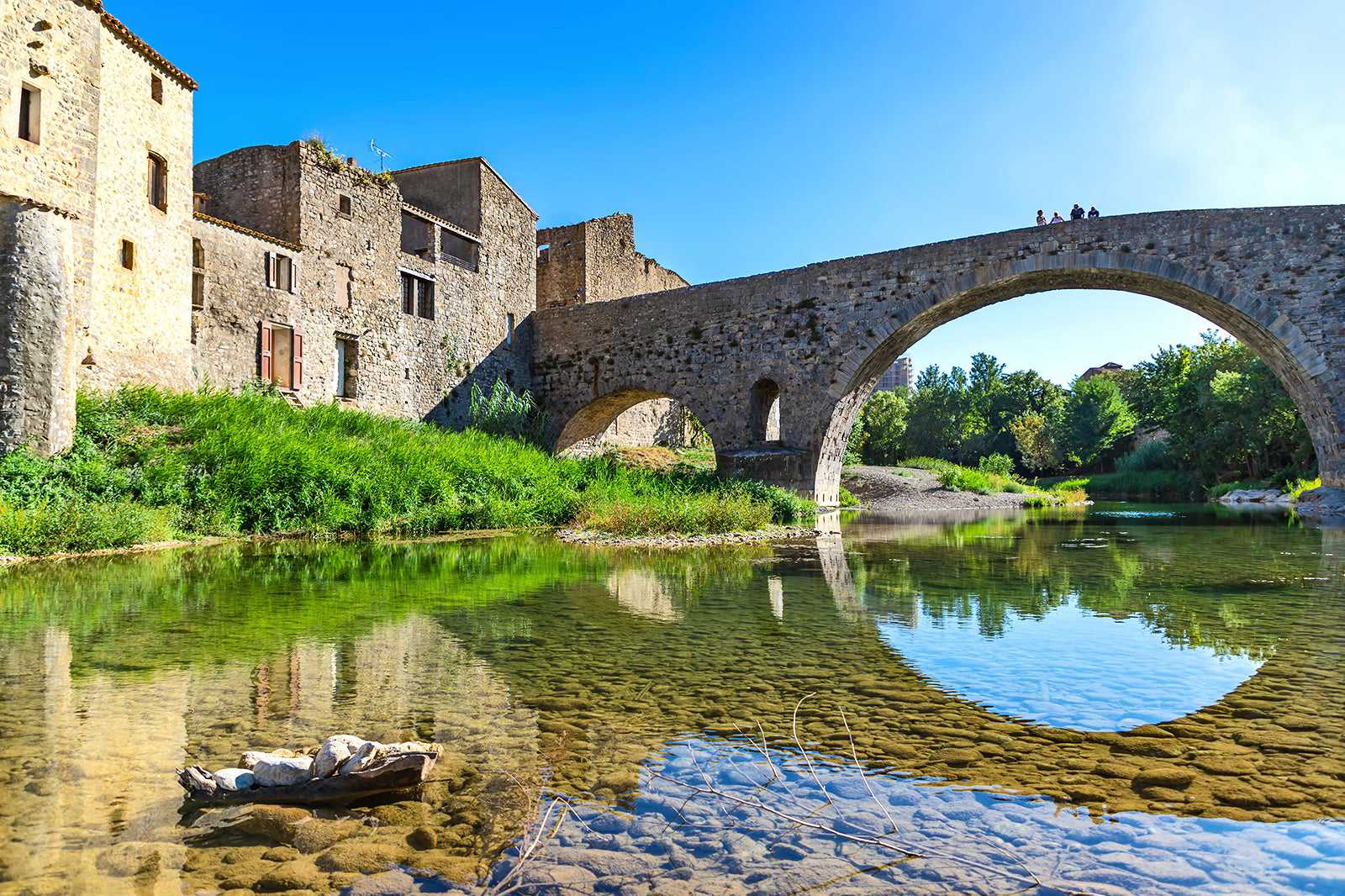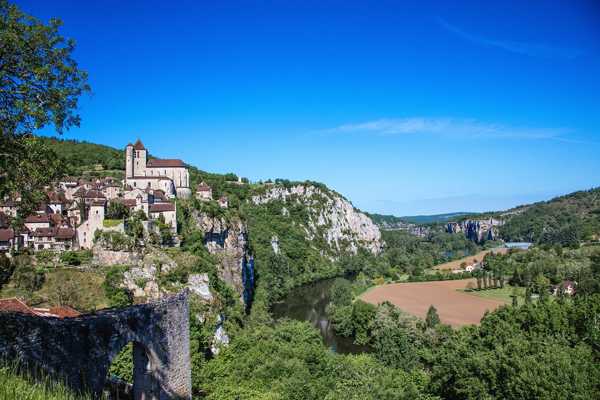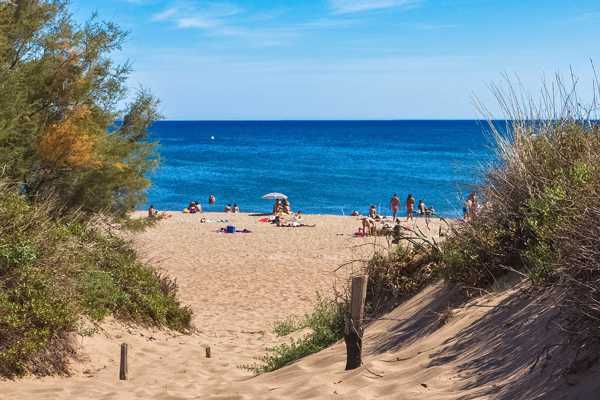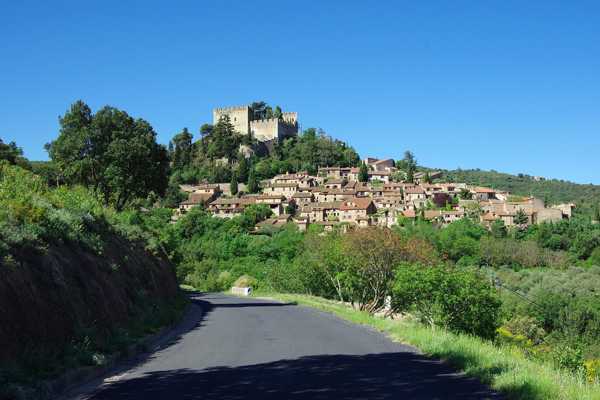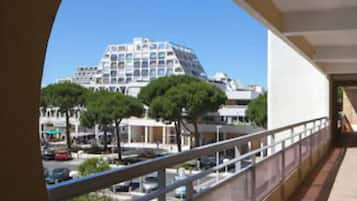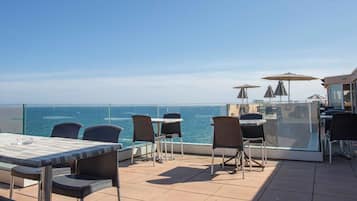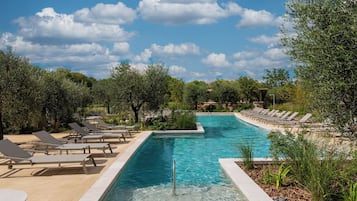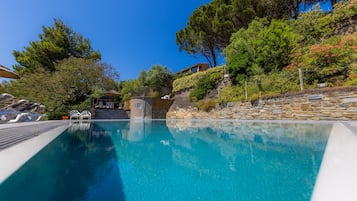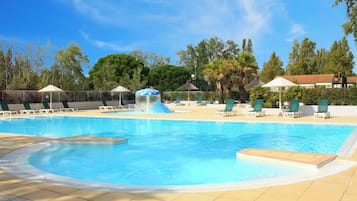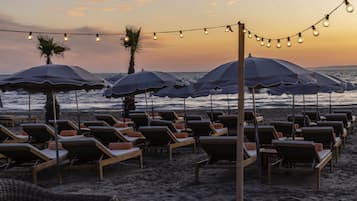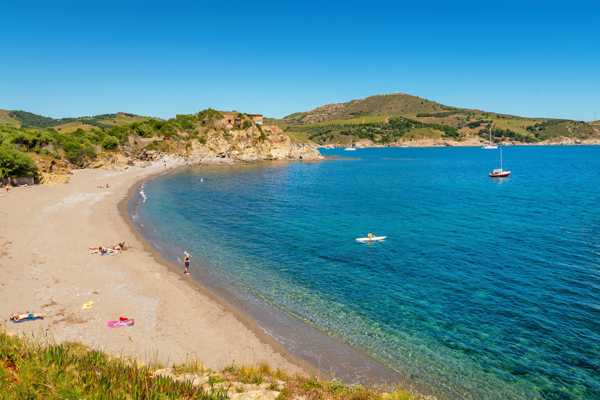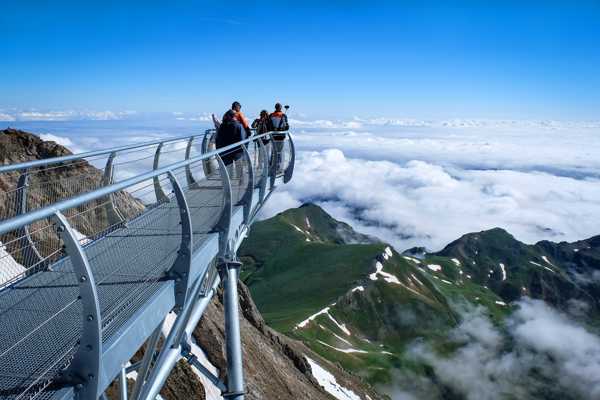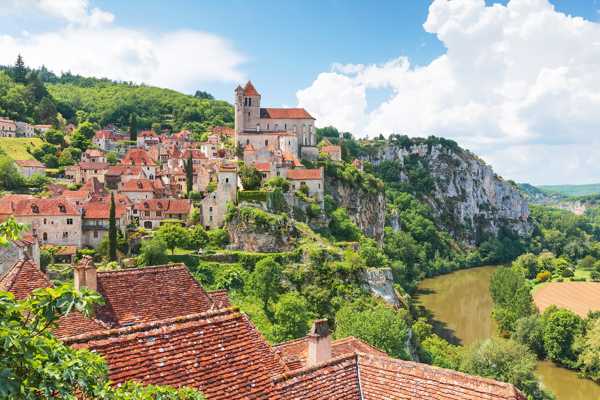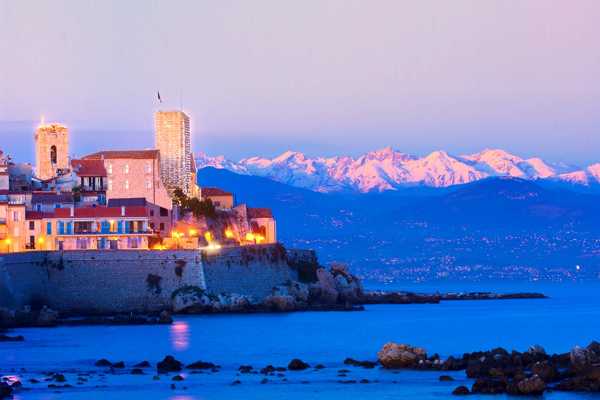The best things to do this summer in Languedoc can include anything from lazing on a beautiful Mediterranean beach to visiting iconic historical sites and drinking fine red wines. The 42,000-sq-km area has an impressive mix of landscapes, from soft white sands on the coast to stunning peaks in the Pyrénées and gorgeous river valleys of Cévennes National Park.
While the province of Languedoc is no longer considered an official division of France, having been absorbed into the Occitanie administrative region, the area still has a distinctive personality and atmosphere that’s well worth experiencing. We’ve compiled a few ideas for ways you can do just that.
What are the best things to do this summer in Languedoc?
- 1
Toulouse
Discover the past and the future in one city
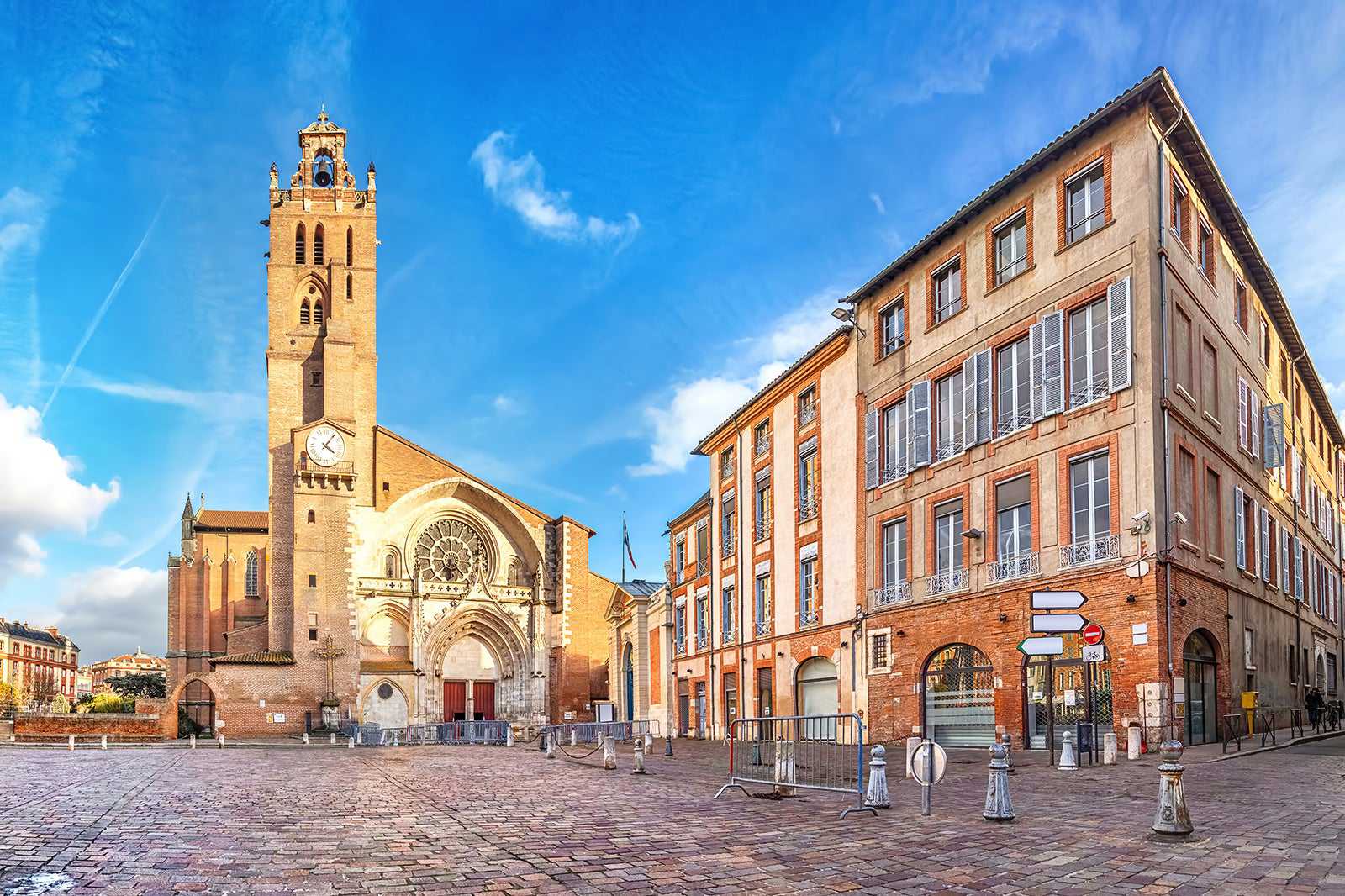
- Historia
- Yöelämä
- Valokuvaus
Toulouse was the capital city of the former province of Languedoc and remains an important hub in the southwest of France. The city’s long and glory-filled history has left its mark in the form of some really stunning landmarks, 3 of which have been designated as UNESCO World Heritage sites. Check out the stunning Basilica of St Sernin and the impressive Canal du Midi, at the very least.
It’s not all ancient history in Toulouse. The city is a lively industrial city, home to many of the leading companies in the European air and space travel industries. It also has one of Europe’s oldest and largest university campuses, meaning it has a distinctly ‘young’ atmosphere, especially when it comes to nightlife.
Kartta - 2
Pont du Gard
Ancient Roman engineering at its finest
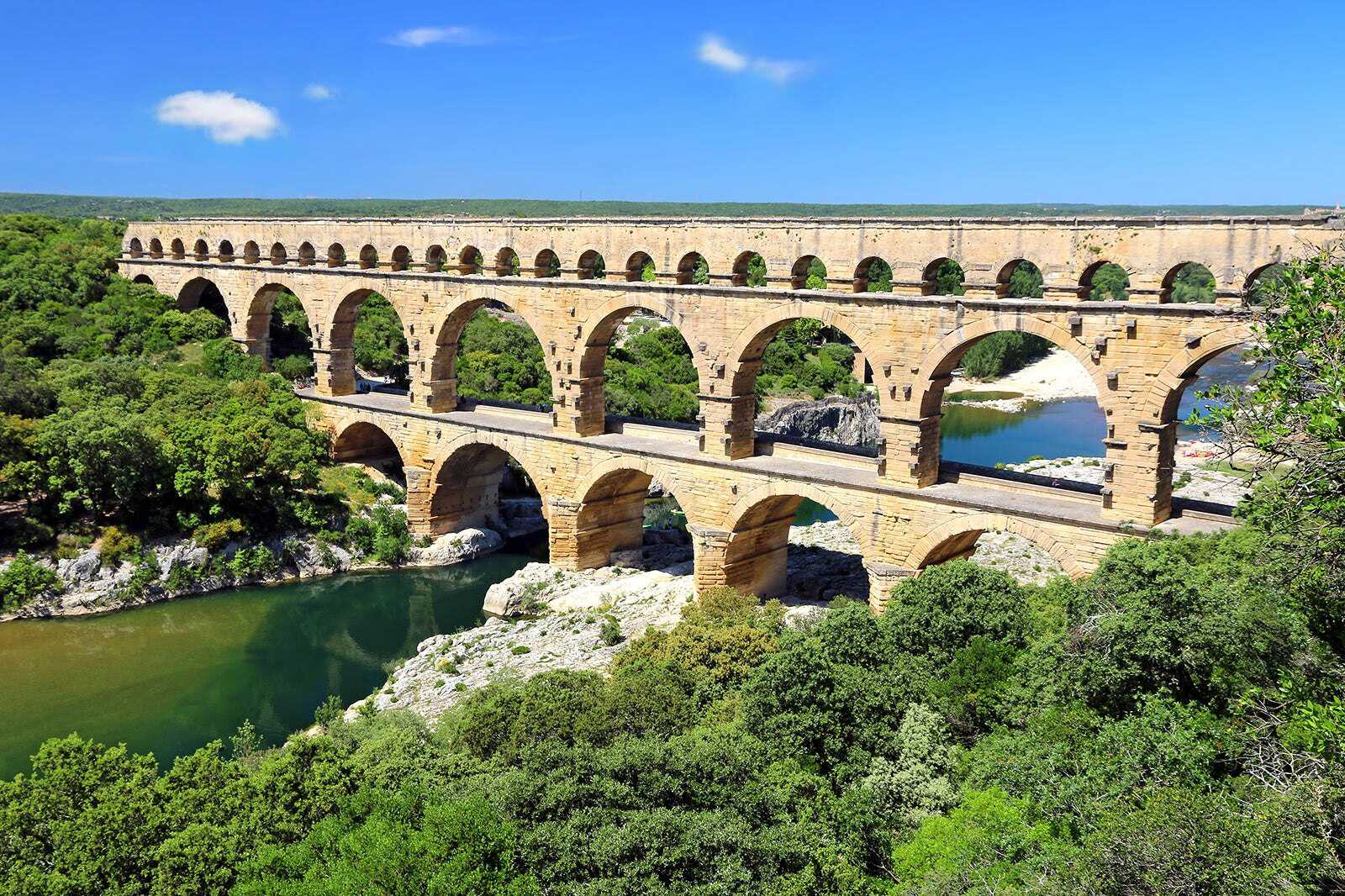
- Historia
- Valokuvaus
The Pont du Gard aqueduct bridge is one of the most iconic structures in the Languedoc area. The aqueduct was built by the Romans in the 1st century AD to carry water to what is now Nîmes, with this particular part of it standing nearly 50 metres tall as it crosses the Gardon River.
The Pont du Gard hasn’t been used to carry water since about the 6th century, but the road bridge, which was added in the 18th century, is still in use and gives you a fantastic up-close view. You can get better views from the rocks along the riverbank on either side, though, and guided tours can even take you inside the aqueduct.
Osoite: 400 Route du Pont du Gard, 30210 Vers-Pont-du-Gard, France
Avoinna: Daily from 9 am to 9 pm
Puhelin: +33 (0)4 66 37 50 99
Kartta - 3
Uzès
A hub of historical charm and gummy bears
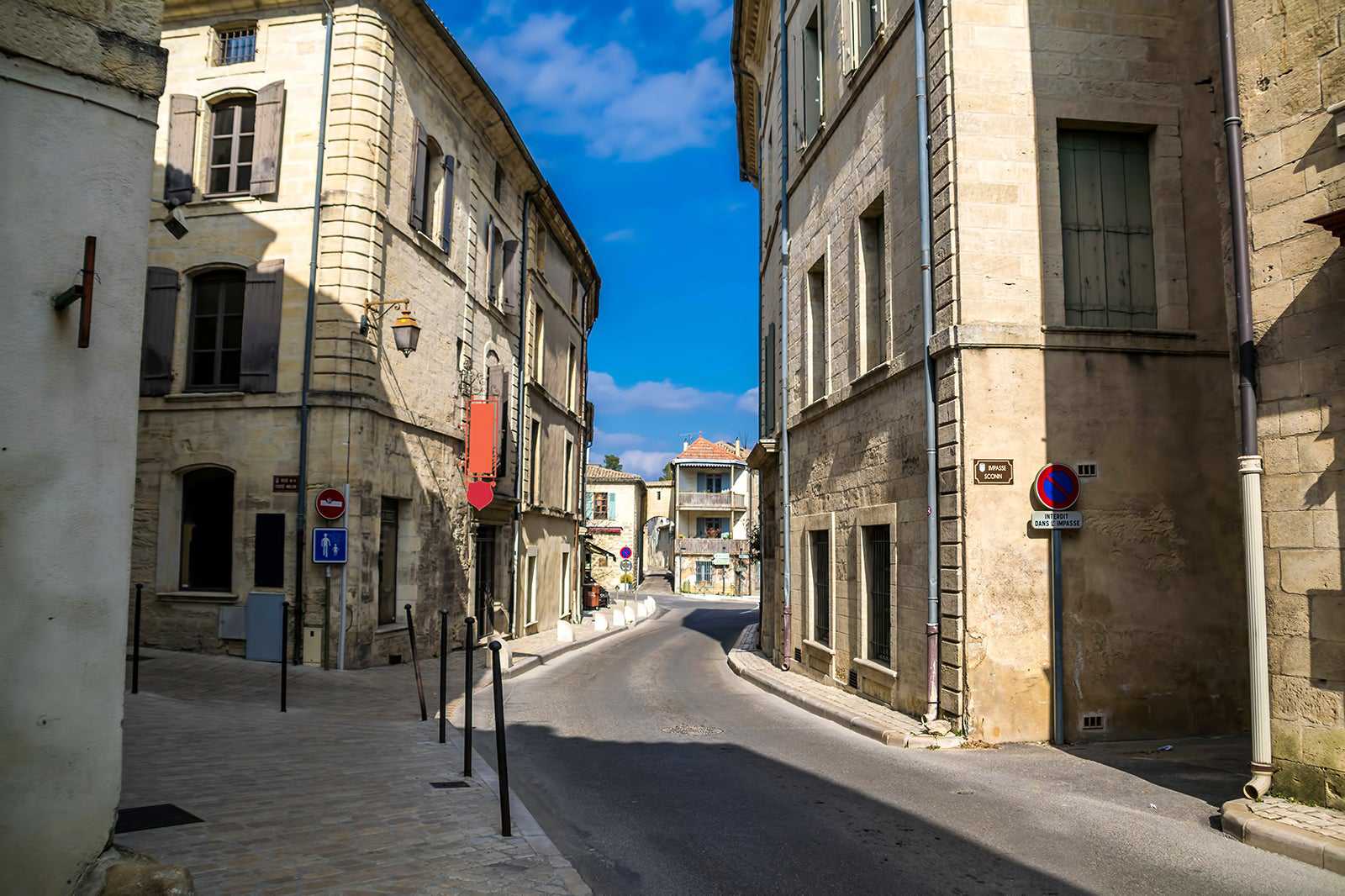
- Ruoka
- Historia
- Valokuvaus
The beautiful town of Uzès is packed with history along every narrow street and in every charming square. At its heart is the Ducal Palace, with its iconic Tour Bermonde tower. An hour-long tour will show you the fantastic view from the top of the tower, as well as the palace’s impressive rooms, courtyard, keep and garden.
Other historical highlights within a short walk of the impressive castle include the Musée Georges Borias, the Medieval Garden, and Uzès Cathedral. As a more modern counterpoint, there is also a museum on the southern outskirts of town entirely dedicated to Haribo – the German confectionery famous for introducing the world to gummy bears.
Kartta - 4
Gorges du Tarn
Outdoor adventures in striking surroundings
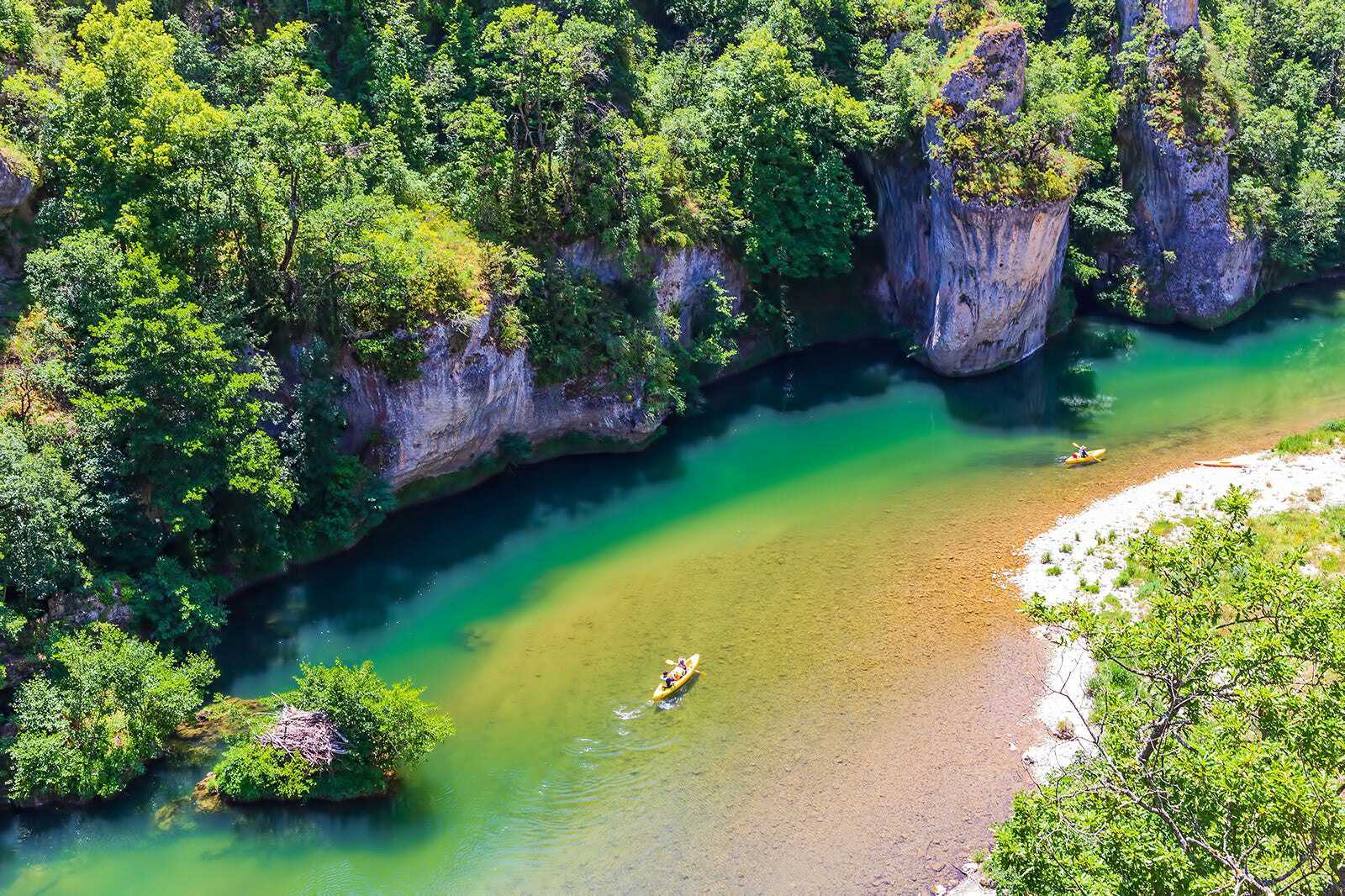
- Seikkailu
- Pariskunnat
- Perheet
- Historia
- Valokuvaus
The Gorges du Tarn is a stunning 53-km-long canyon carved by the Tarn river. It’s a great place to enjoy outdoor activities like hiking, kayaking, caving, and climbing. However, if you’re not so adventurous, there’s a road running along the bottom of the canyon, beside the river, which gives you easy access to awe-inspiring views.
Among the odder sights to see in the Gorges du Tarn are the castles that were built on its sheer walls in the Middle Ages. Castelbouc is especially impressive, dominating the river and a tiny village from atop a rocky outcrop. Sadly, this particular castle is now a ruin, but those of Lacaze, Saint-Rome-de-Dolan and a couple of others are in better condition.
Osoite: 48150 Saint-Pierre-des-Tripiers, France
Kartta - 5
Faugères AOC
Taste some of Languedoc’s finest wines
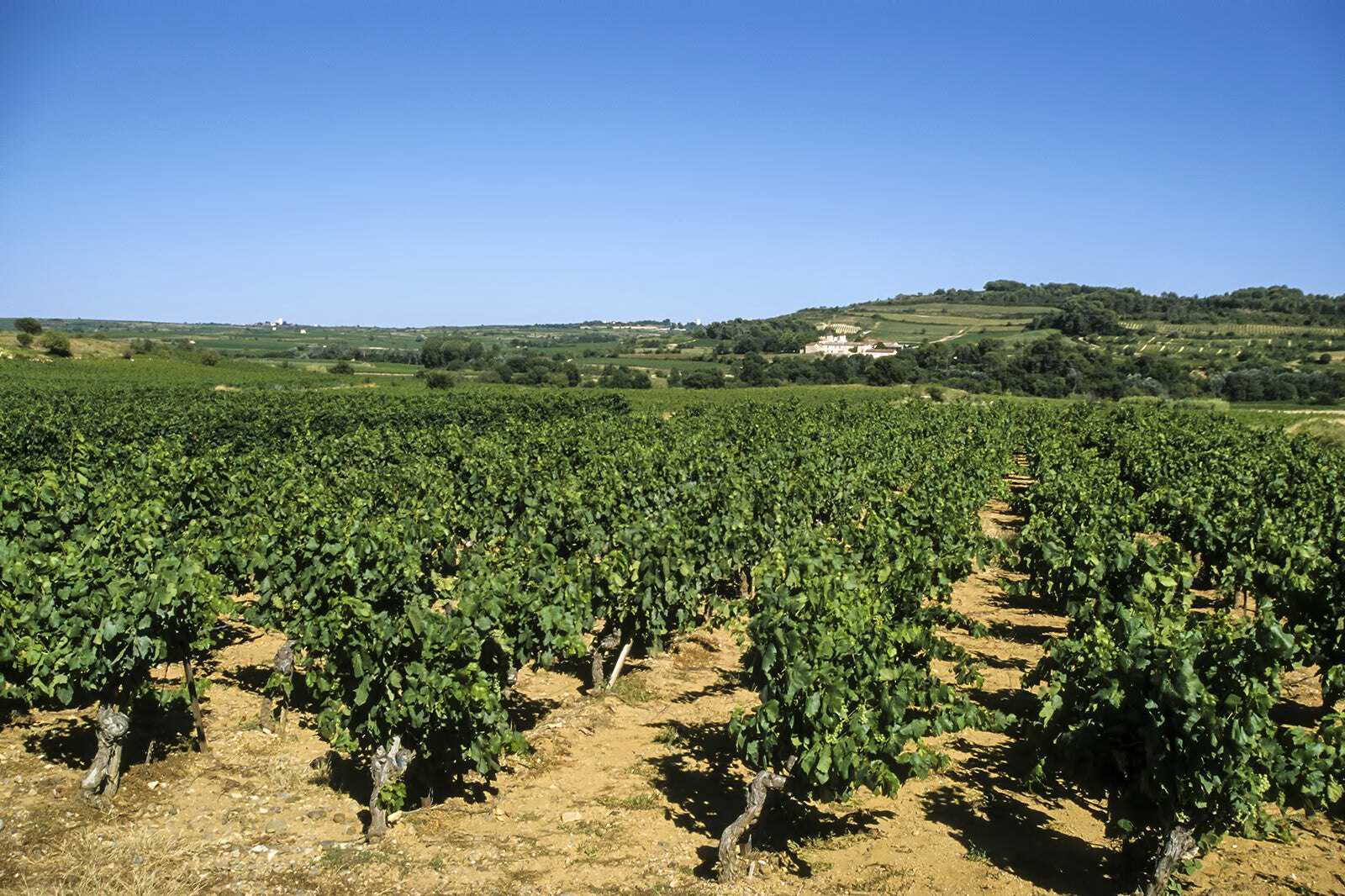
- Pariskunnat
- Ruoka
You can’t talk about Languedoc without mentioning wine, and those from the Faugères Appellation d'origine contrôlée (AOC) are the best of the bunch. Located in the eastern part of Languedoc, the products of this wine region are somewhat similar to those from the neighbouring Rhône valley, with a similar thick texture and high alcohol content.
Also known as the Coteaux-du-Languedoc Faugères, there are over 40 wineries in the area, many of which offer tours and tastings. Domaine Jean-Michel Alquier is especially worth checking out – the family-run vineyard is ranked among the region’s best.
Kartta - 6
Espiguette Beach
Seemingly endless stretches of soft white sand
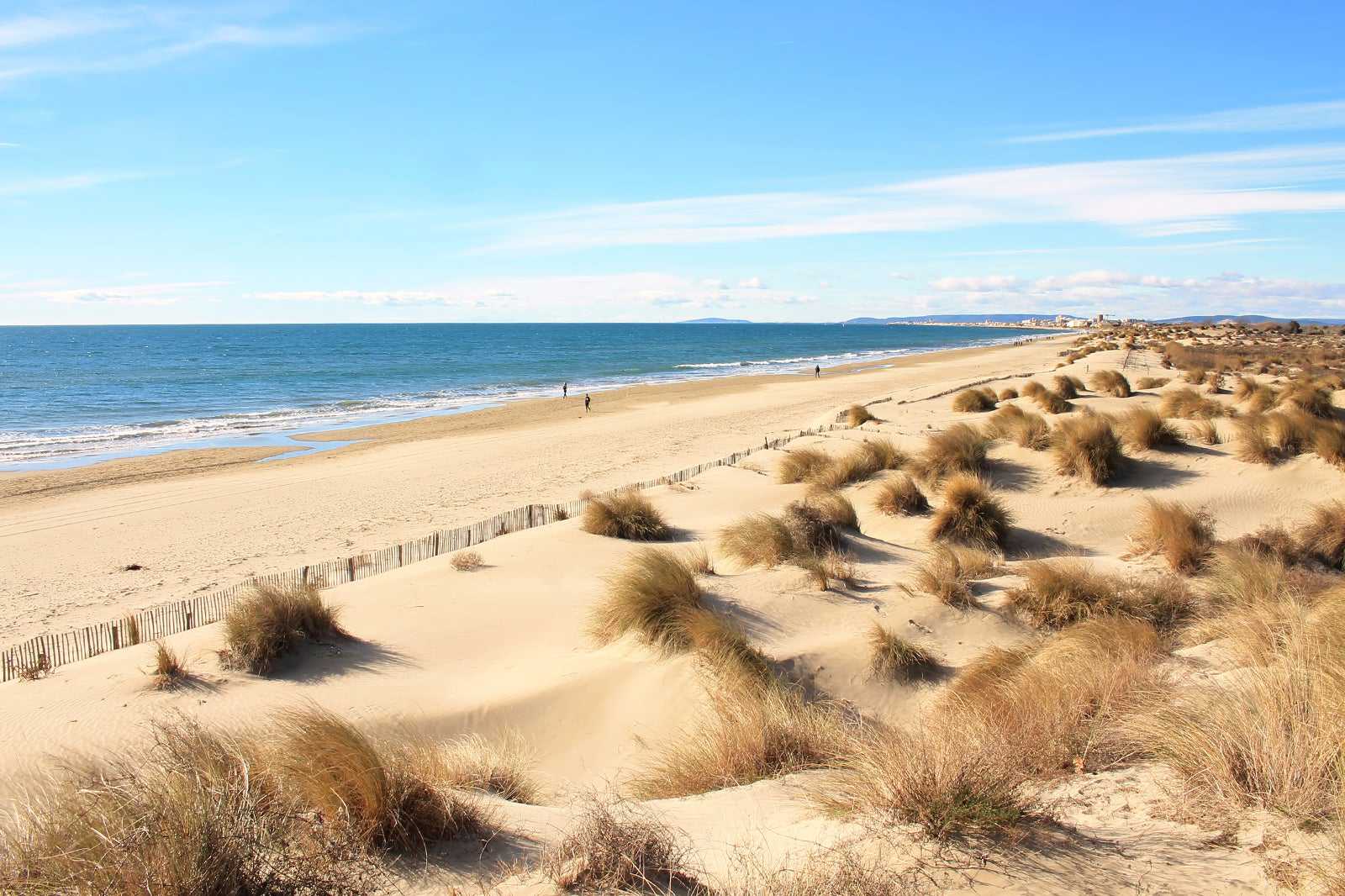
- Seikkailu
- Halpa
- Pariskunnat
- Perheet
- Valokuvaus
Espiguette Beach is considered the finest of Languedoc’s beaches thanks to its long stretches of fine white sand. At roughly 18 km long, there’s no shortage of space, so finding a quiet patch is generally quite easy. It’s generally a little busier close to Le Grau-du-Roi and Port Camargue as this is where you’ll find car parking, a couple of beachfront restaurants and sunbed and paddleboard rentals.
By contrast, the further you get from the town, the quieter it gets. Walk far enough and you’ll find increasing numbers of nude sunbathers, though you’ll also find fewer facilities. If you’re visiting Languedoc in summer, you’ll find the occasional drinks seller wandering up and down the beach to keep you refreshed.
Kartta - 7
Cirque de Mourèze
Take a walk among the weird rock formations
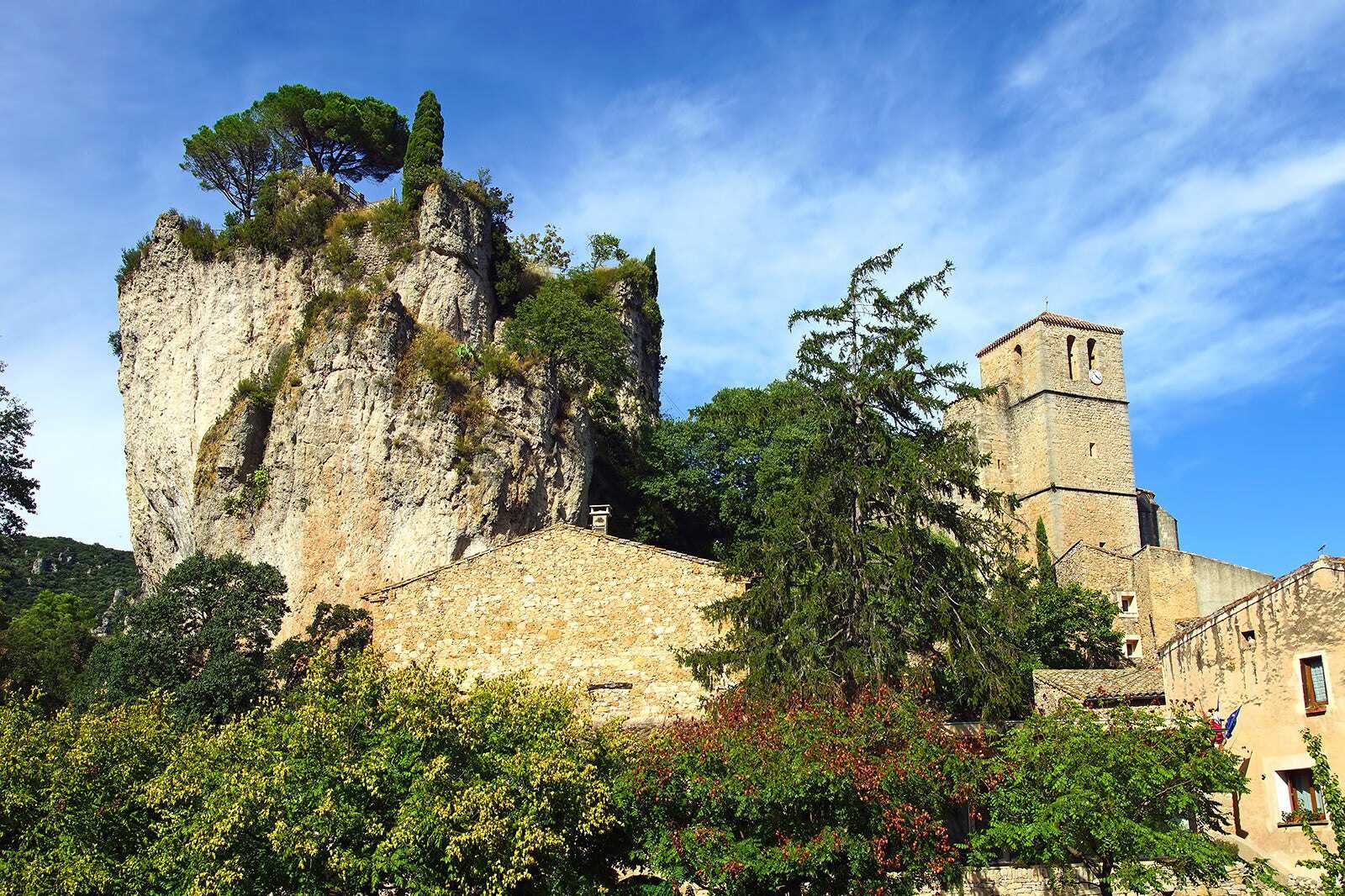
- Seikkailu
- Halpa
- Valokuvaus
- Uniikki
The Cirque de Mourèze is a fascinating outcrop of dolomite limestone on the outskirts of the charming village that the park is named after. Being limestone and therefore prone to erosion, the landscape is a rather bizarre one, with pillars of rock jutting from the scrubland in shapes that sometimes seem to make a mockery of gravity.
To get the most out of the Cirque de Mourèze, you need to bring your hiking boots. There are several marked routes around the park presenting varying levels of challenge. The best is the ‘difficile’ walk, which is about 2.5 hours long and quite an undertaking – it’s honestly more of a climb than a hike. However, the reward is an unbeatable view of Lake Salagou to the north and the Cirque de Mourèze to the south.
Osoite: Route de la dolomie, 34800 Mourèze, France
Kartta - 8
Villefranche-de-Confluent
Take a break in the Pyrénées
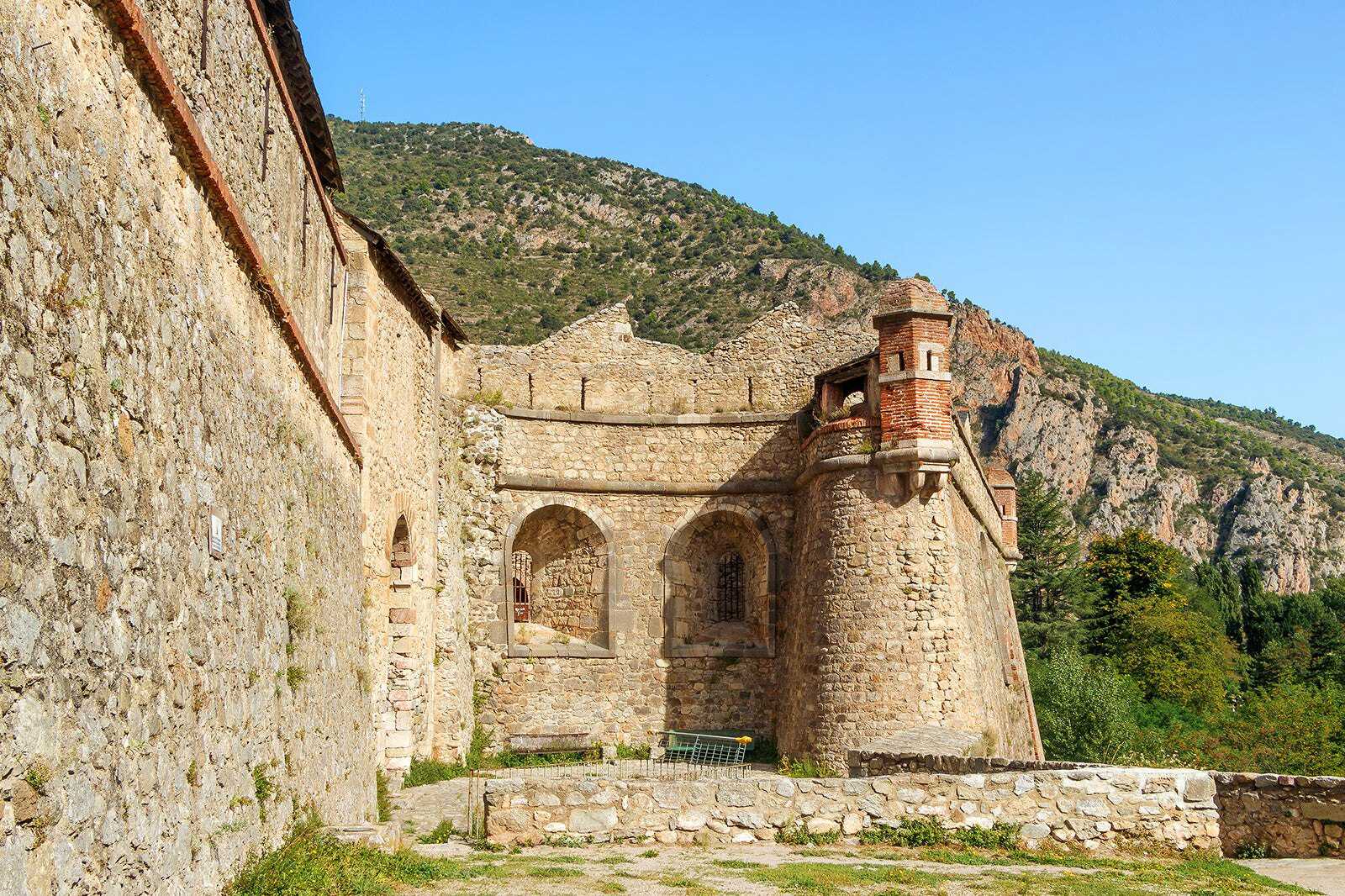
- Seikkailu
- Historia
- Valokuvaus
Villefranche-de-Confluent is a small fortified town halfway up the Pyrénées, about 440 metres above sea level. It’s so close to the Spanish border that it has changed hands a few times in its long and surprisingly violent history. The defences that you can still see today date back to the early 1700s and are listed as a UNESCO World Heritage site.
Within the formidable walls and under the gaze of the hillside fortress, you’ll find winding alleys between red-roofed stone buildings. Many now contain excellent shops and restaurants. Outside the town, the surrounding hills and mountains are covered in tracks and trails for you to hike.
KarttaValokuva: H. Zell (CC BY-SA 3.0) muokattu
- 9
Cap d'Agde
Take your pick from 9 beautiful beaches
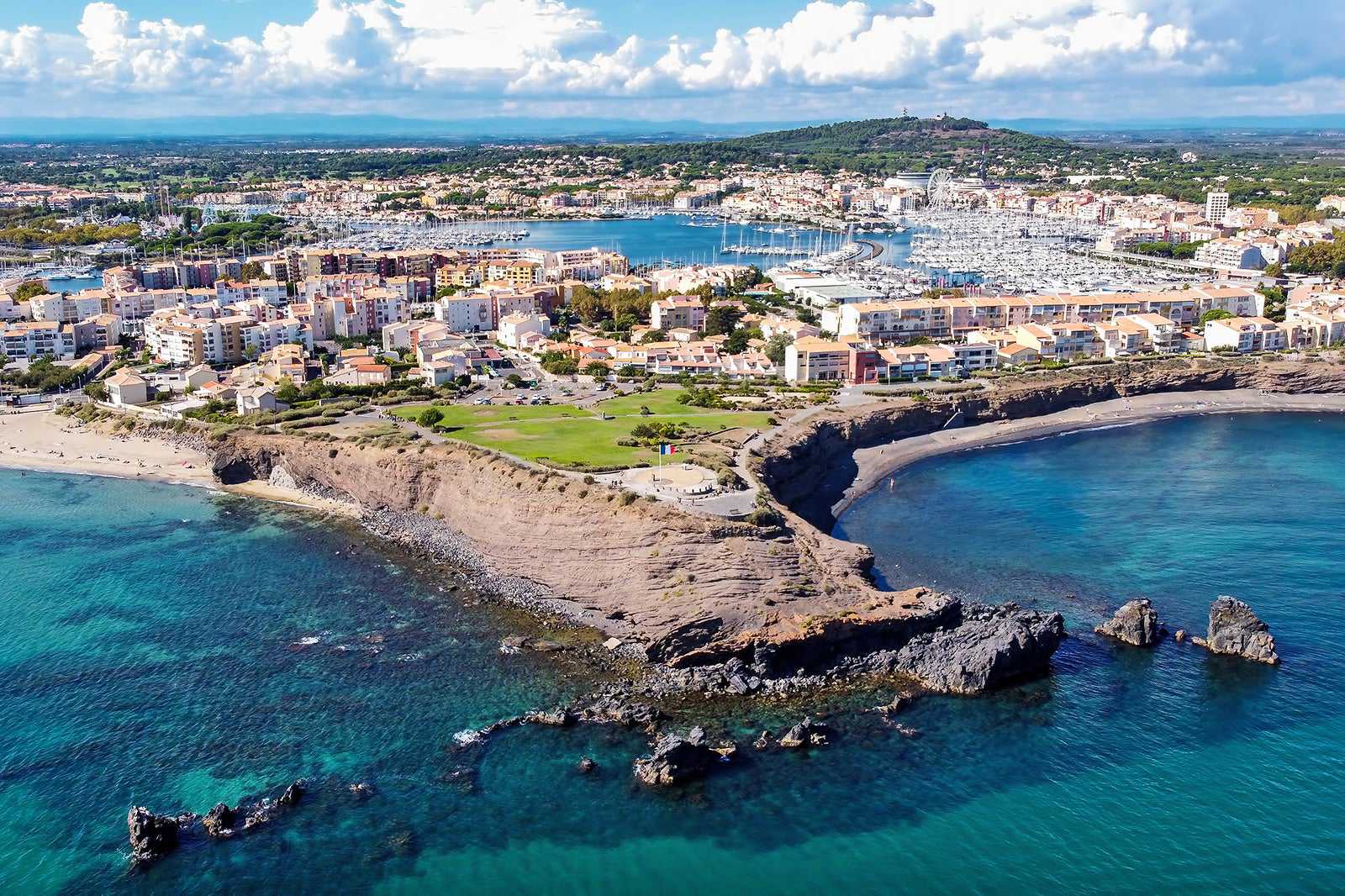
- Seikkailu
- Valokuvaus
Cap d'Agde is a popular seaside resort town on the Mediterranean coast. If you're planning to spend your summer in Languedoc, this one location can give you a massive amount of options to choose from, including no fewer than 9 beaches. There's also a marina, amusement and water parks, golf courses, casinos, and lots more.
The best of Cap d'Agde’s beaches is called The Nudist Beach – and it lives up to its name. It’s part of the largest nudist colony in Europe. That being the case, there is a small entrance fee you’ll need to pay to get at the fine white sand. If you want less cost and more clothes, Le Mole Beach is a good, family-friendly option with shallow water, showers, and convenient parking, all close to the town.
Kartta - 10
Lagrasse
Cool off in the River Orbieu
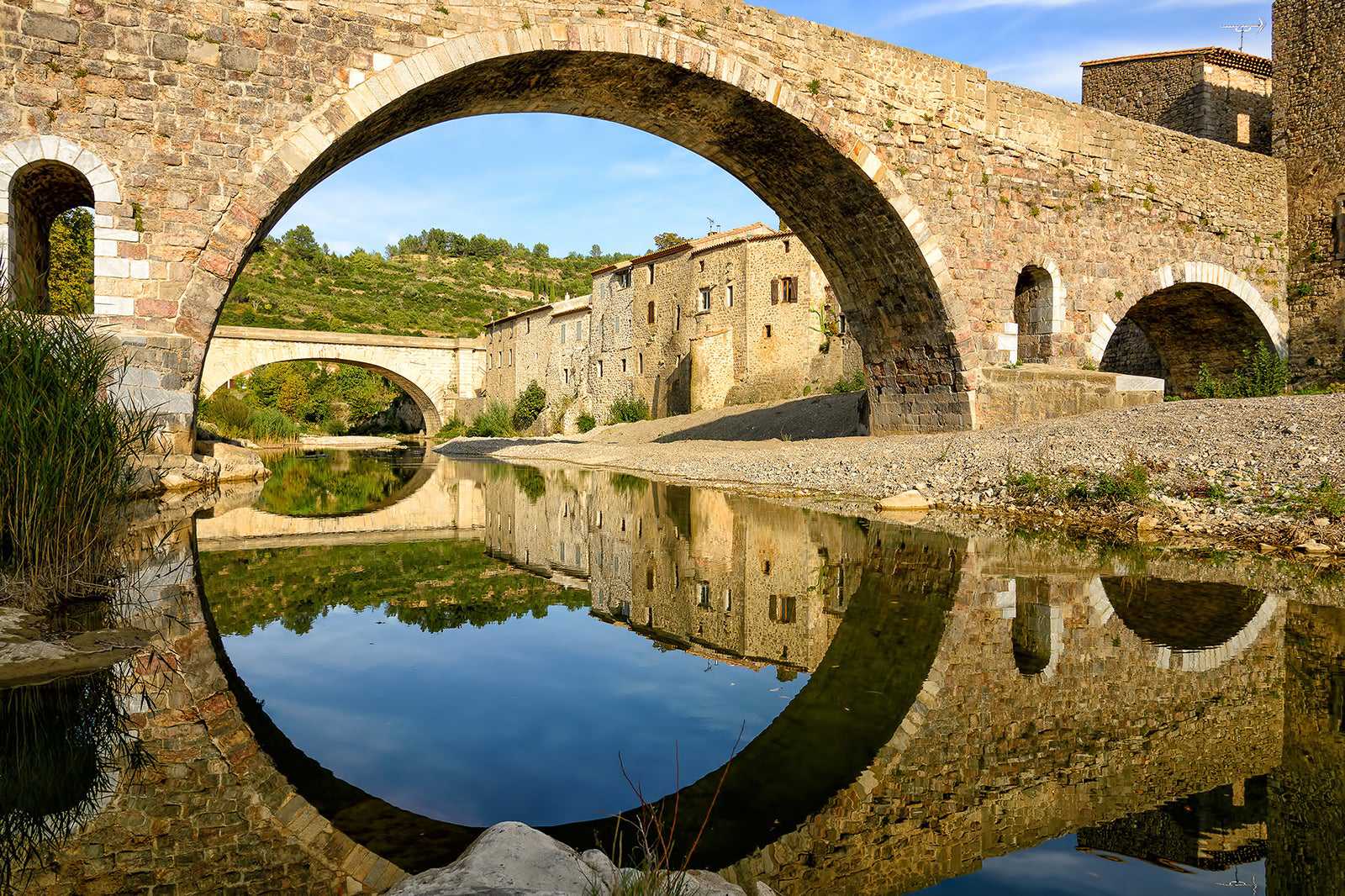
- Seikkailu
- Historia
- Valokuvaus
The lovely little village of Lagrasse is found at the feet of the Pyrénées, in the beautiful River Orbieu valley. It truly deserves its membership of the Les Plus Beaux Villages de France (the most beautiful villages of France) association, thanks to its ancient abbey, winding medieval streets, old stone bridges and many cultural attractions.
If you’re visiting Languedoc in summer, you’re not only likely to find some kind of festival going on in Lagrasse, but you can also take a cooling dip in the river. There’s a dam on the Orbieu by the southern end of the village, forming a little pool that you’ll often find locals swimming in.
Kartta
